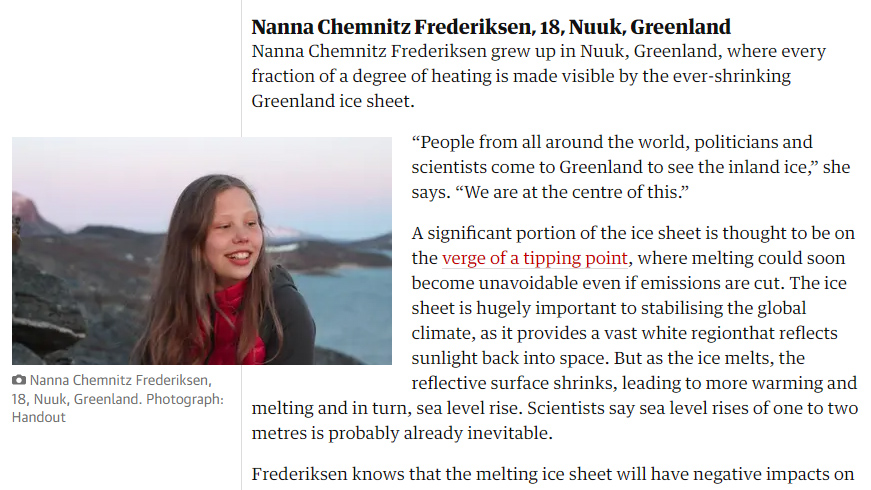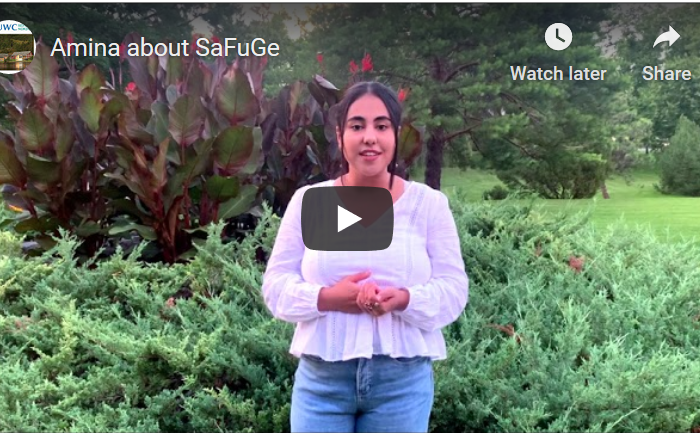“People from all around the world, politicians and scientists come to Greenland to see the inland ice,” she says. “We are at the centre of this.”
A significant portion of the ice sheet is thought to be on the verge of a tipping point, where melting could soon become unavoidable even if emissions are cut. The ice sheet is hugely important to stabilizing the global climate, as it provides a vast white region that reflects sunlight back into space. But as the ice melts, the reflective surface shrinks, leading to more warming and melting and in turn, sea level rise. Scientists say sea level rises of one to two metres is probably already inevitable.
Frederiksen knows that the melting ice sheet will have negative impacts on communities across Greenland, especially in northern settlements such as Qaanaaq where permafrost melting is destabilizing homes and roads and impacting how fishers and hunters operate.
But her real concern lies on the impact it will have globally. “I am not so scared of what the effects of the melting of ice in Greenland will be,” Frederiksen says, “It scares me what effect it can have for the rest of the world.”
Latest News
Amina (RCN’19) awarded with Davis Project for Peace
Congratulations to Amina (RCN'19). The Davis Committee has chosen her project among the rewarded for the 'Davis Project for Peace' 2020.
In Memory of Ulysses (Nkosingizwele) Zwane (UWCRCN 2002)
We were shocked to receive the following information from Mzwandile Ginindza (RCN 2003 graduate, Ulysses' first year): It is with our deepest sorrow that we mourn the passing of our beloved Ulysses (Nkosingizwele) [...]
RCN Students get ChangeMaker Funds
Congratulations to our RCN students Laura, Ylva, Diva and Meg whose ChangeMaker video-pitch about Quality Education was so good that they project got funded! Now the real work starts as they have to [...]




